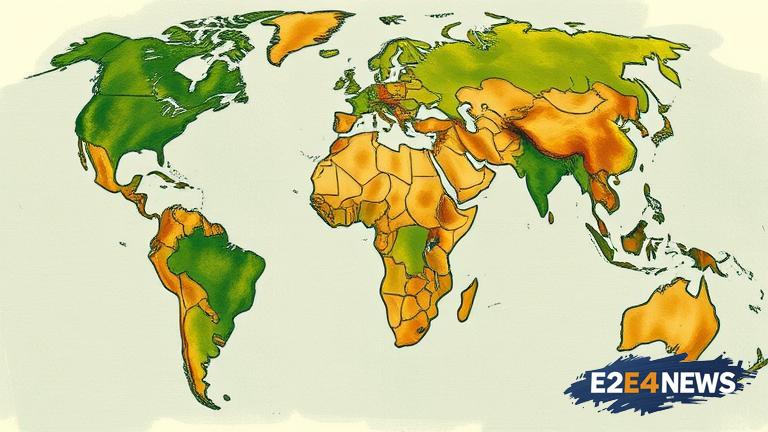Climate change is having a profound impact on global food systems, with rising temperatures and extreme weather events affecting food production, distribution, and security. The consequences of climate change are far-reaching, from crop failures and reduced yields to changes in the distribution of pests and diseases. In recent years, the world has witnessed an increase in extreme weather events such as droughts, floods, and heatwaves, which have devastating effects on agricultural productivity. The effects of climate change are not limited to food production, as changes in temperature and precipitation patterns also impact the availability and quality of water, which is essential for irrigation and other agricultural purposes. Furthermore, climate change is altering the distribution and prevalence of pests and diseases, which can have significant impacts on crop yields and food security. The consequences of climate change are not limited to the environment, as they also have significant social and economic implications. Climate change is expected to lead to increased food prices, reduced incomes, and decreased food security, particularly for vulnerable populations such as the poor and marginalized. In addition, climate change is also expected to lead to increased migration and conflict over resources, as people are forced to leave their homes in search of food and other essential resources. The impacts of climate change on food systems are not limited to any one region or country, as they are a global phenomenon that requires a coordinated and collective response. The international community has recognized the importance of addressing climate change and its impacts on food systems, and has developed a range of initiatives and strategies to support climate-resilient agriculture and food security. These initiatives include the development of climate-resilient crop and animal varieties, the promotion of sustainable agricultural practices, and the implementation of early warning systems and other climate-related services. Despite these efforts, much more needs to be done to address the scale and complexity of the challenges posed by climate change. The development of effective strategies to address climate change will require the active engagement and participation of governments, international organizations, civil society, and the private sector. It will also require significant investments in research and development, as well as in the implementation of climate-resilient agricultural practices and technologies. The consequences of inaction will be severe, as climate change has the potential to undermine decades of progress in reducing poverty and improving food security. In conclusion, climate change is a major threat to global food systems, and requires a coordinated and collective response to address its impacts on food production, distribution, and security. The international community must work together to develop and implement effective strategies to support climate-resilient agriculture and food security, and to reduce the risks and vulnerabilities associated with climate change. This will require significant investments in research and development, as well as in the implementation of climate-resilient agricultural practices and technologies. Additionally, it is essential to support small-scale farmers and rural communities, who are often the most vulnerable to the impacts of climate change. By working together, we can reduce the risks and vulnerabilities associated with climate change and ensure a food-secure future for all. The importance of addressing climate change cannot be overstated, as it has the potential to undermine decades of progress in reducing poverty and improving food security. Moreover, the impacts of climate change are not limited to the environment, as they also have significant social and economic implications. Therefore, it is essential to develop and implement effective strategies to support climate-resilient agriculture and food security, and to reduce the risks and vulnerabilities associated with climate change.
